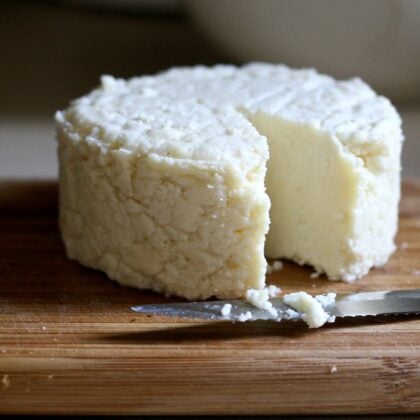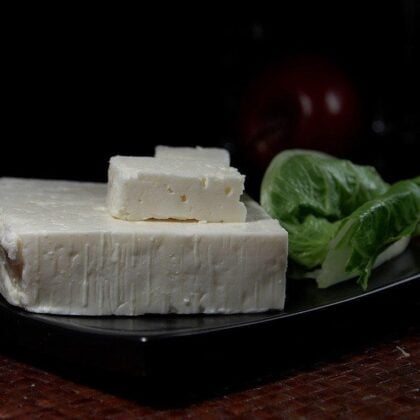
Yoghurt is one of the most widely consumed dairy products in France. It is often thought to be easier to digest than milk, especially for people who are lactose intolerant.
But what is it really? Does yoghurt always contain lactose? Is it tolerable for everyone? We explain everything in detail.
Yoghurt is a dairy product... so it contains lactose
Yoghurt is made by fermenting milk with lactic ferments. Milk is naturally rich in lactose, a sugar that some people find difficult to digest.
Result: yes, yoghurt contains lactose.
Fermentation partially reduces lactose
Fortunately, the bacteria present in lactic ferments consume some of the lactose. during fermentation.
This process not only reduces the total amount of lactose, but also partially transforms it into lactic acid, a compound more easily tolerated by most sensitive intestines. As a result, lactose levels are reducedThis can make yoghurt more digestible for some people, but it is not always easy to digest. is not zero for all that.
This means that people who are very sensitive to lactose can still experience symptomsespecially if consumed repeatedly or in large quantities.
Why do some people tolerate yoghurt better?
Even though it still contains lactose, yoghurt can be better tolerated by some people. Here's why:
- The active bacteria in yoghurt help to digest lactose in the intestine.
- Prior fermentation "prepares" the digestion process.
- Yoghurt sometimes passes more slowly through the digestive system than milk, limiting rapid reactions.
Variable tolerance depending on the individual
Lactose intolerance is a complex physiological phenomenon. Each individual has their own tolerance threshold (genetics has a lot to do with it). Some people digest plain yoghurt very well, while others will react to the slightest spoonful.
Not all yoghurts are created equal
- Yoghurts nature generally contain less lactose than with fruit or flavouredwhich often contain milk powder or lactose-rich additives. For industrial reasons relating to texture, taste or preservation, some brands also add :
- powdered milk (which contains around 50 % of lactose),
- condensed milk,
- whey,
- or fresh cream.
- The low-fat yoghurts or "light" are not synonymous with lactose-free.
There are alternatives
For those with a confirmed intolerance, there are solutions:
- Lactose-free yoghurts They contain an added lactase enzyme, which breaks down lactose.
- Plant-based yoghurts soy, almond, coconut... They do not contain no lactose at all.
- Lactase supplementation for food supplements such as those proposed by LACTOLERANCE help to digest lactose-containing products.
- Home-made lactose-free yoghurts Easy to prepare with lactose-free or plant-based milk. You can find a simple recipe on our website.
In a nutshell
Yes, yoghurt still contains lactose, even after fermentation. But its special structure makes it a product that is often more digestible than milk. For very sensitive people, it's best to opt for yoghurts. lactose-free or plants. LACTOLERANCE, an expert brand since 2010, offers effective, tailor-made digestive solutions, 100 % of natural origin, adapted to each intolerance profile.
Does yoghurt contain lactose?
Yes, all yoghurts contain lactose, even fermented ones. However, their content is reduced by the action of lactic ferments, which consume some of the lactose during fermentation.
How much lactose does traditional yoghurt contain?
Plain cow's milk yoghurt contains an average of 3 to 4g of lactose per 100g. This is still less than milk, which contains around 4.8 g per 100 ml.
Are all yoghurts well tolerated by people with lactose intolerance?
It all depends. Some intolerant people digest plain yoghurt well, thanks to the live ferments that help break down the lactose. Others, who are more sensitive, may experience symptoms even with small quantities.
Are there lactose-free yoghurts?
Yes, some yogurts are lactose-reduced by adding the enzyme lactase, which makes the final product lactose-free. This is indicated on the packaging, often under the words "lactose-free".
How do you digest yoghurt if you're very sensitive to lactose?
You can take a lactase supplement such as LACTOLERANCE 9000 or LACTOLERANCE ULTRA before eating yoghurt, to help digest the lactose without digestive discomfort.

Hello, I'm Vincent
Like you, I'm lactose intolerantI know exactly what you're going through and the difficulties you encounter on a daily basis. For over 10 years, I've been helping our customers to use our dietary supplements and giving advice and tips on how to improve their digestive comfort. I'm also a keen cook and gourmet, so you'll find my favourite recipes for a lactose-free diet in this blog.
Lactose intolerance is not inevitable! With LACTOLERANCE you can digest with complete peace of mind






